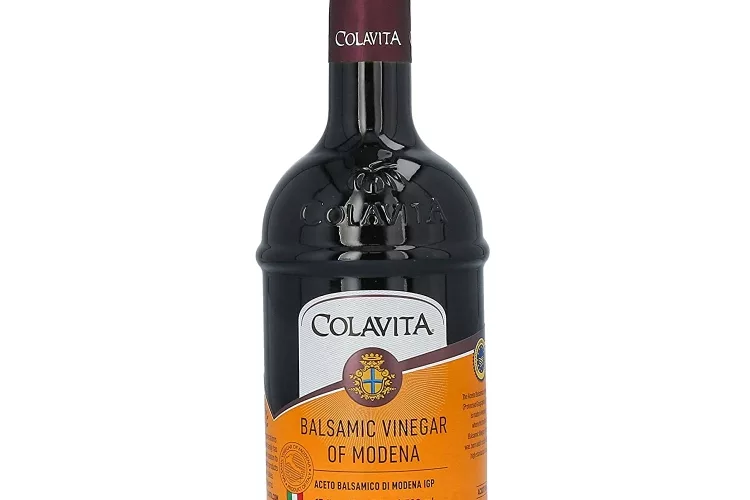The Best Balsamic Vinegar For Salads: Is Aged Good
by Touseef Shaikh
Firstly, you want to look for full-bodied balsamic vinegar. This won't be your cheapest vinegar - but that shouldn't be of any concern when it comes to choosing a good balsamic vinegar for salads. It should not be too thin or watery and it must be rich, sweet, heavy and viscous.
Contents
How to Find the Right Balsamic Vinegar?

When it comes to balsamic vinegar there are lots of brands out there but few are actually worth it's price. In fact, most are simply mixed with other cheaper and inferior products that compromise it's flavor and texture. Those who have the resources and time to experience food know the importance of vinegar in making a well rounded salad. In fact, we all probably learned in high school that vinegar is an acid and when placed in contact with calcium likes will react. This reaction causes the vinegar to change from it's liquid form and turn into beads which we often see on salad. Although these reactions make sense, it's worth knowing there is a lot more to it than that. In particular the type of calcium in the food you choose can have some very dramatic effects.
What Makes Balsamic Vinegar Best For Salads?

Balsamic vinegar is a great addition to almost any salad. A great tasting vinegar such as balsamic has a wonderful rich flavor that pairs beautifully with fresh greens. It also gives you a wonderful surprising sweet aftertaste.
In addition to being delightful in taste, balsamic vinegar is also wonderful for your health. Its mild acidity provides numerous benefits including providing protein and potassium.
Experts have suggested that the mild acidity in the balsamic vinegar is also one of the main contributors to its health benefits. The benefits can probably be attributed to the acidity rather than the vinegar itself. This is because the vinegar contains a large number of nourishing vitamins.
One of the reasons balsamic vinegar is great for salads is; vinegar provides a tangy taste which is a nice contrast to the bland taste of a plain salad. In addition, balsamic vinegar mixes very well with citrus based dressings thus providing a complementary taste.
Is Aged Balsamic Vinegar Better than Regular?

In order to be labeled "Aged", the vinegar must be aged for at least 3 years in wooden barrels. The barrels are made from different types of wood such as oak, chestnut, cherry, mulberry, juniper, acacia and ash.
Should Balsamic Vinegar Need to be Organic?

No, organic balsamic vinegar is not necessarily better than non-organic. Organic balsamic vinegar, like other organic products, is produced according to certain standards.
How Balsamic Vinegar is made?

Balsamic vinegar is made from grapes, but it doesn't start out as regular white wine vinegar. Traditionally, balsamic vinegar is made from white Trebbiano grapes that are pressed and fermented like wine. The fermented juice is then transferred to a barrel and left to ferment for a couple of years.
There is a long process in making Balsamic Vinegar, as Balsamic vinegar is a traditional vinegar aged for years in oak barrels. The longer it ages, the darker and thicker it becomes.
Where does Balsamic Vinegar come from?
Balsamic vinegar is made in Modena, Italy, which is the capital of balsamic vinegar in the world. It's made in a region called Emilia Romagna, which is also the capital of the region.
Is Balsamic Vinegar great for salads?
Balsamic vinegar is rich in antioxidants and it's great for your heart. If you can find great quality balsamic vinegar at your grocery store, it's definitely a healthy salad dressing you'll want to use.
 |
 |
 |
 |

About Touseef Shaikh
Hi, I am Touseef, and I can help you here with the right information about groceries. With years of experience in looking for nutritional information I can find the right products related to grocery and gourmet and can save a lot of your time."